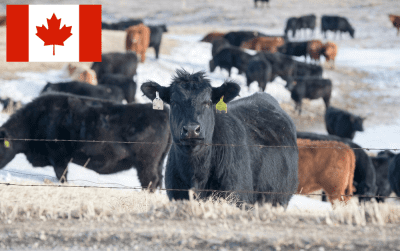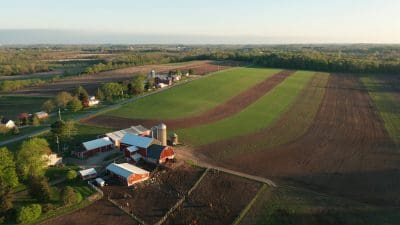Canada’s application to access Australia’s market for chilled and frozen beef has moved a step closer to approval, clearing a key regulatory hurdle.
 On Friday the Department of Agriculture, Fisheries and Forestry (DAFF) released a final report following a long-running biosecurity review and consultation process.
On Friday the Department of Agriculture, Fisheries and Forestry (DAFF) released a final report following a long-running biosecurity review and consultation process.
It found that biosecurity risks associated with importing fresh (chilled or frozen) beef and beef products from Canada to Australia can be effectively managed to meet Australia’s Appropriate Level of Protection (ALOP).
Based on that finding, DAFF has recommended Canada be added to the list of countries that can apply to Australia for market access for fresh beef.
The next step in the process is for DAFF to complete Canada’s Competent Authority Assessment, to determine if Canada’s official animal health, export control, and supervision systems will ensure Australia’s biosecurity and food safety requirements are met.
Sources familiar with the Departmental process told Beef Central it is likely that some of that work has already been completed alongside the earlier review, suggesting a final determination on Canada’s application for market access could be made relatively soon.
US beef access also in focus
Canada’s application also has implications for the United States’ long running bid to regain access to Australia’s market for fresh beef imports.
Australia suspended US beef import access in 2003 when BSE was discovered in the US herd.
The US has made several applications to regain full access to Australia’s market in the past 22 years and is on the list of approved applicant countries which could allow export of beef from cattle born and raised in the US.
 As part of what has been a long-running process, the US requested an Australian assessment be conducted to additionally permit trade in meat from cattle born and raised in Canada and Mexico which is processed and exported from the US.
As part of what has been a long-running process, the US requested an Australian assessment be conducted to additionally permit trade in meat from cattle born and raised in Canada and Mexico which is processed and exported from the US.
DAFF has been conducting that review of fresh beef and beef products imported from the US but including beef sourced from cattle imported to the US from neighbouring Canada and Mexico, which is reflective of the US beef supply chain.
As Beef Central reported in October last year the process has been working through a complex array of issues such as the capacity for individual animal traceability in the US and standards for meat production, food safety, residue risk and other matters.
At the same time the American Meat Institute (AMI) wrote to the US Trade Representative noting that DAFF “had recommended allowing the importation of fresh beef and beef products from the US derived from immediate slaughter, feeder, and breeder cattle born and raised in Mexico and Canada – pending a final food safety risk assessment in the case of beef derived from Canadian cattle”.
It added that the “favorable determination” necessitated a “redoubling of efforts to finally secure access for US beef exports to Australia”.
In the same letter the AMI said Australia continued to restrict access for chilled/frozen US beef with “persistent, unjustified BSE disease-related bans” and urged the US Trade Representative to prioritise efforts to remove restrictions on US beef exports to Australia.
Last year an annual US trade barriers report published by the US Trade Representative under the Biden Government also raised concern about Australia’s strict biosecurity rules blocking the sale of US beef, pork, chicken and other agricultural products.
“The United States continues to press the Australian government to align its import requirements for US fresh beef and beef product exports with World Organisation for Animal Health guidelines for countries with a negligible risk,” the reported stated.
“The United States has provided Australia with scientific evidence demonstrating the safety of US pork products; however, the issue remains unresolved.”
Aus industry supports rigorous biosecurity approach
Industry sources have told Beef Central that while the US may be frustrated with Australia’s progress on its market access request, the industry strongly supports the Australian Government conducting thorough science-based risk assessments to meet Australia’s appropriate level of biosecurity protection as is Australia’s right under agreements in the World Trade Organization and World Organization for Animal Health.
Industry sources also noted that changes in US beef access requests mid-stream had played a large role in prolonging timelines due to the US changing the scope for its technical request, telling Beef Central: “The US had not helped itself by changing its scope following Australia’s initial assessment of animals born and raised in the US – this ultimately resulted in a US amendment to include animals sourced from Mexico and Canada, which has necessarily added more complexity and time required to assess risks.”
